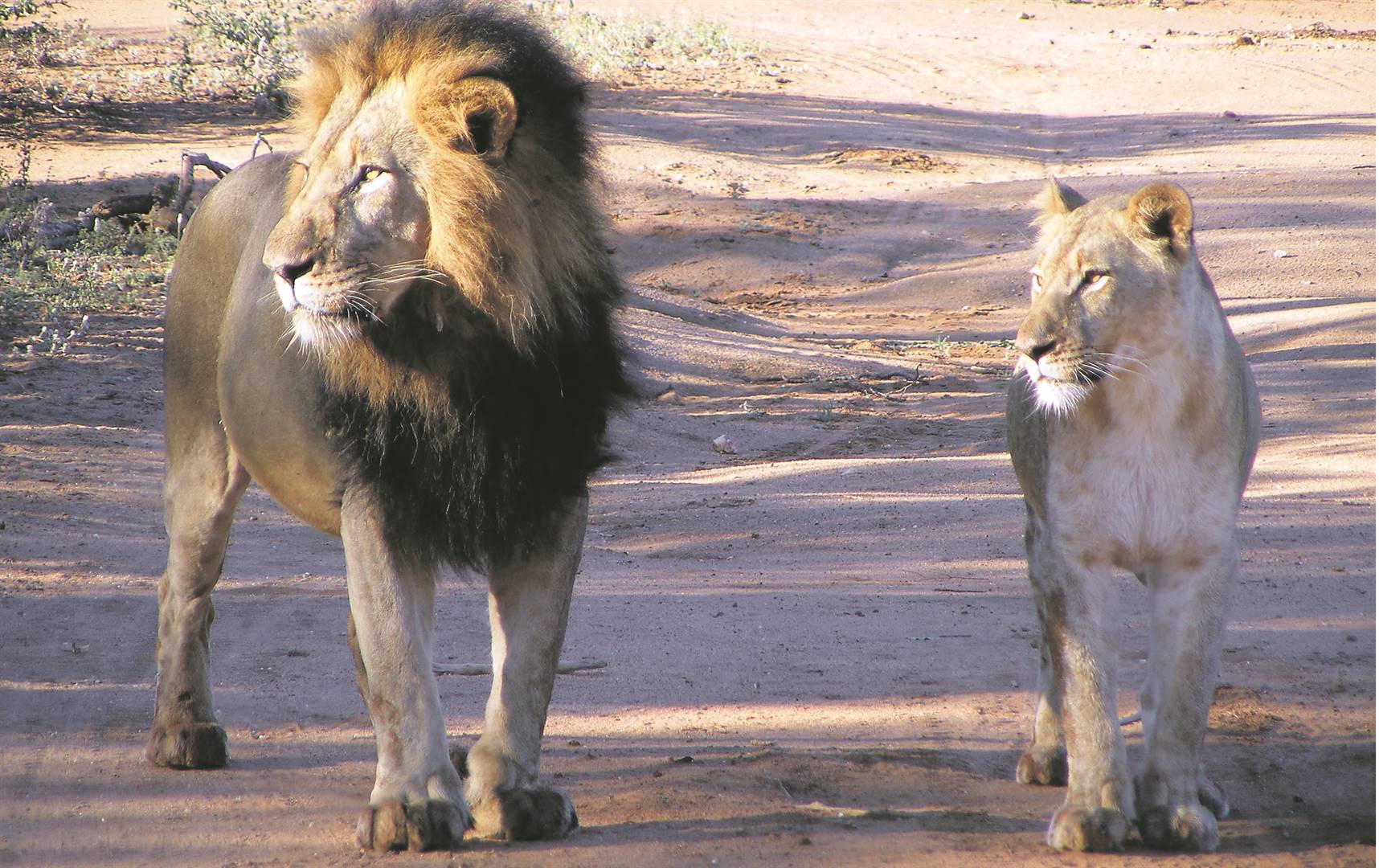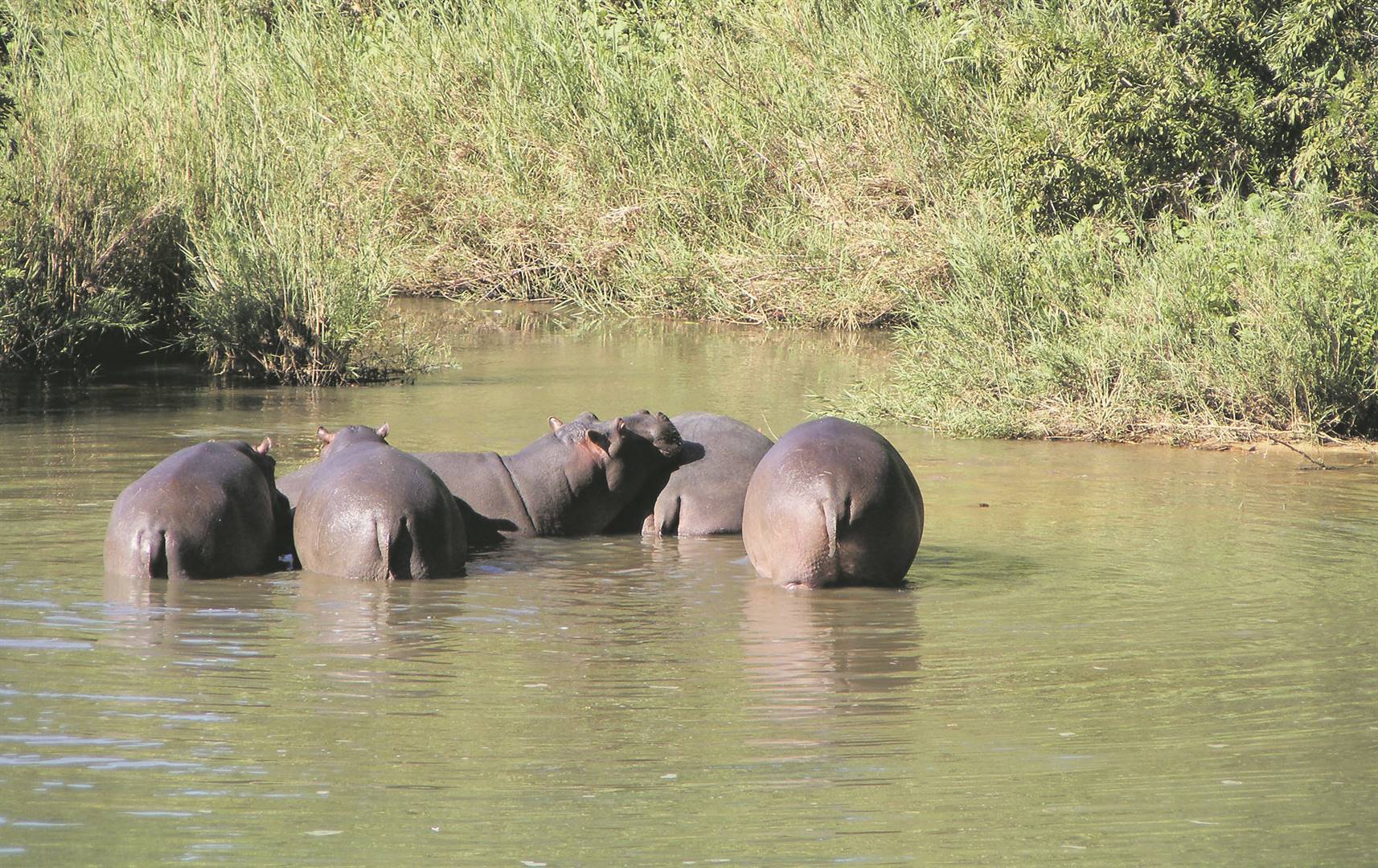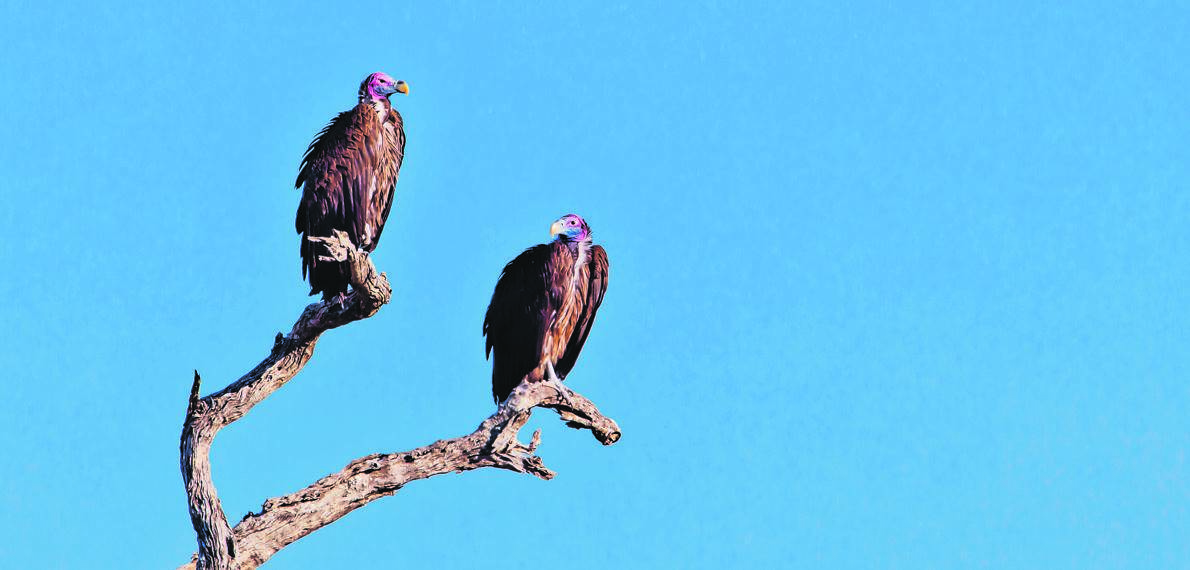
World Environment Day was this week, so it is a good time to reflect on how the climate crisis could affect our tourism industry – and what it will mean for you. Mandi Smallhorne investigates.
The temperature gauge registered 40°C as I left Skukuza on a hot February day a few years ago. I was heading to another camp in the Kruger National Park in an air-conditioned rental car. When I arrived at about 3pm and opened the car door, it was like plunging into a warm bath.
At most, it took me five minutes to walk to the reception desk. The receptionist puzzled me by asking: “Had a bit too much sun?”
In my room, I discovered why she’d said that – the bathroom mirror showed my face had turned bright red. I pushed the bed under the blast of cold air from the air-con and slept in a sopping wet T-shirt.
Many overseas tourists squeal with joy over temperatures that we’re not so enamoured of. “Isn’t the weather just glorious!” they’ll say, slapping sunscreen on to their usually pale skin that’s already the colour of rare roast beef from the unaccustomed sun.
But there are limits.
If the climate changes just a little bit – as it has been doing (a heatwave here, a drought there, a wildfire lapa side) – it can put tourists off. And tourism is one of South Africa’s gems as it’s been growing pretty steadily and reliably for more than two decades.
JOBS, JOBS, JOBS
Between 2014 and 2017, “tourism created just over 64 000 net new jobs, outperforming larger industries such as transport and communication, mining, utilities [electricity, gas and water] and manufacturing”, reports Stats SA.
The tourism sector made up 2.8% of South Africa’s gross domestic product in 2017 – that sounds low, but picture this: it’s higher than agriculture, forestry and fishing put together.
“In 2017, one in every 22 employed people in South Africa were working in the tourism sector, totalling 722 013 individuals. This represents 4.5% of the 16.2 million people in South Africa’s workforce.”
One in 22 employed people? That’s a lot!
Tourism has grown more than tenfold since the birth of the new South Africa – in 1990, we welcomed about 1 million tourists; last year, the numbers were close to 13 million. The bulk come from greater Africa; the rest are overseas visitors.
Professor Gijsbert Hoogendoorn, the head of the geography, environmental management and energy studies department at the University of Johannesburg, says: “Tourism is seen by a lot of politicians and policymakers as the goose that will lay the golden egg.”
People desperately need jobs and tourism is one industry that could oblige. Having seen how the industry can transform places, from inner-city Cape Town to Clarens in the Free State and Dullstroom in Mpumalanga, “every single local municipality has a plan for tourism”, Hoogendoorn says.
But then the impact of the climate crisis starts to be felt and the whole picture changes. The prospect of losing some of those precious jobs and valuable income looms large.
CHANGE IN THE WEATHER
Dr Jennifer Fitchett, a climate researcher at the Evolutionary Studies Institute of the University of the Witwatersrand, like Hoogendoorn, has focused on the climate crisis and tourism. They’ve looked at the tourism climatic index to model the “ideal” climate for tourism, “which is a function of temperature and humidity ... rainfall, sunshine hours and wind speed,” Fitchett explains.
“At the moment, South Africa has what is classified as an ideal climate, but temperature is one of the factors that is most likely to reduce the suitability.”
Drought, of course, is another big factor.
As Hoogendoorn points out, overseas visitors often pay big money for a luxurious experience, and they don’t want to be bothered by pernickety little notices asking them to limit their showers to five minutes and hang up their towels instead of chucking them on the floor to be washed after being used once.
Changes in our rainfall patterns could also affect tourists’ decisions. While much of southern Africa is getting drier, some parts are going to experience more rain – often in the form of extreme weather events.
This would prevent tourists from engaging in popular outdoor activities, from hiking and skydiving to whitewater rafting, says Fitchett.
An increase in tropical cyclones – hitherto a phenomenon largely affecting countries north of us along the east coast of Africa – is on the cards.
Few have affected us thus far; but remember Domoina in 1984, which hit us with floods not seen in 100 years and caused massive damage in KwaZulu-Natal?
Recently, we’ve had more of these events – now imagine what they could do to our tourism industry (never mind everyone else).
In one paper, Fitchett notes that cyclones roaring across the Indian Ocean have been showing a tendency to move “poleward” – south.
“Although the South African coastline is currently protected from tropical cyclones by Madagascar, this southward trajectory has the potential to heighten the proportion of storms tracking south of this island nation.”
South Africans have tended to leave anxiety about rising oceans to Florida in Miami, Venice, London and Bangladesh, but “sea level rise is threatening our sandy shoreline beaches and poses a flood risk to shorefront guesthouses and second homes”, says Fitchett.
With Hoogendoorn and another scientist, she looked at the possible impact on St Francis Bay and Cape St Francis in the Eastern Cape, and assessed the risks as significant in terms of things like storm surges into low-lying areas (St Francis Bay saw considerable damage from such surges in 1996 and 2007).
Researchers from the universities of Salford and Hull in the UK believe flooding of this kind could impoverish natural landscapes, one of the great drawcards for South African tourism.
They looked at two great cyclone-driven flooding events in the Kruger National Park in 2000 and 2012. The flooding stripped plants and sediment from rivers, damaging wildlife habitats and turning them into barren moonscapes.
“Continued progressive loss of habitat diversity will fundamentally, and for all intents and purposes irreversibly, alter our riverine landscapes, and this will be accompanied by a catastrophic loss of species that will be unable to adapt to the new environments,” they warned.
BYE BYE, BOKKIE
Perhaps most heart-wrenching of all to bush lovers is the impact on wildlife.
The climate crisis, says Fitchett, influences the timing of annual “events such as plant flowering, animal hibernation and hatching, the range of animal migration and plant distribution, and eventually animal and plant mortality”.
“As we are so reliant on nature-based tourism, this is a significant threat to our tourism income.”
The Big Five, already threatened by poaching, are not the only animals at risk.
The Kruger National Park’s website says: “In the Kruger National Park, a temperature increase of between 2.5°C and 3°C could lead to the extinction of 24% to 59% of mammals, 28% to 40% of birds, 13% to 70% of butterflies, and between 21% and 45% of reptiles.”
Two-thirds of all animal species in the park could disappear. The north is likely to become much too dry to support large animals like elephants.
WHAT CAN YOU DO?
The industry has, to some extent, already engaged in efforts to influence policy in terms of mitigation and adaptation, says Fitchett, but “far more work needs to be done, particularly in South Africa, where a large number of accommodation operators are small to medium-sized enterprises that independently lack the capital to invest in long-term adaptation.”
TOURISM OPERATORS NEED TO:
. Read up on the effects of the climate crisis, and appreciate how fast change is already happening and how it is affecting their businesses now;
. Be proactive about adapting (anything from water harvesting and controlling interior temperatures to shifts in seasonality);
. Engage with tourists to understand what they need and want; and
. Become effective lobbyists (band together for this purpose if necessary) for assistance from government as well as policy action.
ALL OF US NEED TO:
. Vote! Vote for the party that has detailed, practical and workable policies on climate change mitigation and adaptation on water, land regeneration and energy.
Depending on how proactive we are, Fitchett says that “we could potentially do very well if we adapt effectively and market ourselves proactively for both the current and changing climate, and in relation to other regions that would also necessarily be experiencing climate change.”
TALK TO US
Are we all doing enough to safeguard our environment? Do you think those around you care enough? What do you do to reduce your carbon footprint?
SMS us on 35697 using the keyword CLIMATE and tell us what you think. Please include your name and province. SMSes cost R1.50. By participating, you agree to receive occasional marketing material




 Publications
Publications
 Partners
Partners










